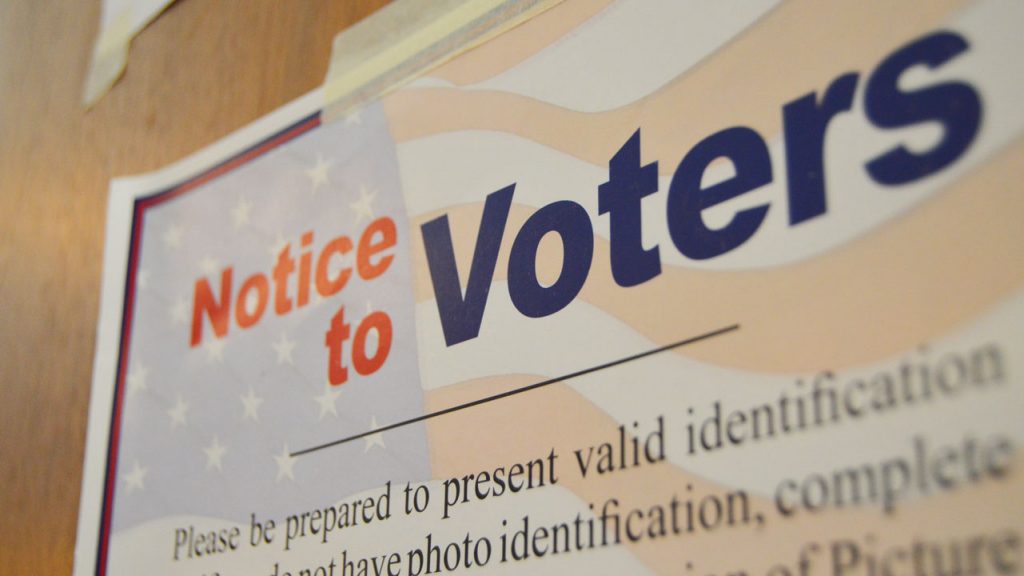MichMash: Are You Cool With Just 20 Percent of Eligible Voters Deciding Who Represents You?
Monday is the last day to register to vote in the August 7th primaries in Michigan.


Monday, July 9 is the last day to register to vote for Michigan’s August primary elections.
Voters will decide on August 7 who will get their party’s nominations for governor, congressional races, and other statewide and local contests.
Click here to find out how to register to vote.
As part of a weekly series called MichMash, Jake Neher and Cheyna Roth talk about why you should get to the polls in August.
Neher speaks with a number of voters in Detroit about why they plan — or don’t plan — to vote in the primaries.
Click on the audio player above to hear that conversation.
Click here to listen to Roth and Neher talk about this topic on Detroit Today with Stephen Henderson.
Do you really want to let 20 percent of the population choose your candidates for you?
In 2010, just 22 percent of the voting age population in Michigan cast a primary ballot. That was the last time Michigan had a primary election in a gubernatorial year with no incumbent running for governor.
And that was a fairly high voter turnout number for a Michigan primary.
Most years, less than 20 percent of people old enough to vote actually show up at the polls.
That means, if you don’t vote, you’re leaving it up to that small group of people to make decisions for you about who will appear on the November general election ballot.
Your vote carries more weight in a primary than a general election
Due to the fact that the vast majority of eligible voters don’t vote in August, your vote carries a lot more weight in the primaries.
“Your voice matters that much more and you have that much more influence if you’re one of the people who get out of your seats and go vote,” says Cheyna.
There’s a common sentiment among American voters that they don’t like their choices of candidates in general elections. It’s an oft-cited reason for not voting at all.
The irony is, primaries often offer you a lot of choices in terms of candidates’ records, visions, ideas, and ideologies.
As Roth says, “if you’re a person who likes choices, the primary is a gold mine for you.”
You can find more information about candidates running for governor here, and more about Michigan’s upcoming elections here.
Primaries often decide who represents you in Lansing and Washington
There aren’t many congressional or legislative districts in Michigan that switch between Republicans and Democrats in any given election these days.
Critics of the way the lines are drawn say that’s due to partisan gerrymandering in Michigan. You can learn more about that issue and a ballot proposal meant to address it here.
That means the person who wins the primary for the party in control is almost guaranteed to win the general, and thus be the person representing you in Congress or the state Legislature.
Congress’ approval rating is below 20 percent. That makes it a safe bet that among the 80 percent who don’t vote in Michigan, there are plenty who aren’t happy with how they’re represented on Capitol Hill.
“As the old, wise internet meme says, ‘Don’t complain about things you’re not willing to change,'” says Neher.
